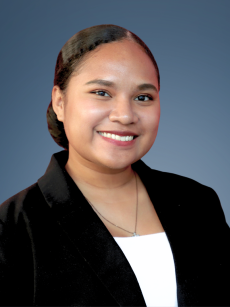Q: How did your Applied Humanities major coursework help prepare you or give you unique insight for the “real world” of work?
A: My Applied Humanities coursework prepared me by strengthening both my critical thinking and practical problem-solving skills. I work a lot with real data, and my classes taught me how to go beyond surface-level analysis—helping me ask deeper questions about context, impact, and meaning. The interdisciplinary nature of the major trained me to consider multiple perspectives and adapt to complex situations, which is incredibly valuable in work settings that require both analytical skills and human understanding. Whether I’m interpreting data trends or collaborating across teams, I’m able to connect technical work to real-world outcomes.
Q: What advice would you give to Applied Humanities students as they approach graduation?
A: Lean into the flexibility and interdisciplinary strength of your degree. You’ve likely developed the ability to analyze problems from multiple perspectives and work with both abstract concepts and concrete data—those are highly valuable skills. My advice is to be intentional in how you present your experience: show how your training in critical thinking, ethics, and collaboration gives you an edge in any workplace. And don’t hesitate to step into roles that might seem outside your “major” title. Applied Humanities is all about adaptability and relevance.
Q: With hindsight, what do you appreciate about your Applied Humanities education?
A: I appreciate that Applied Humanities didn’t box me into one narrow skillset. Instead, it prepared me to be a flexible, ethical, and reflective professional. It gave me tools to navigate complexity; whether that’s working through messy data, solving logistical challenges, or building communication strategies. The critical thinking I developed has become one of my strongest assets, especially in my role where decisions have real-world impact.


